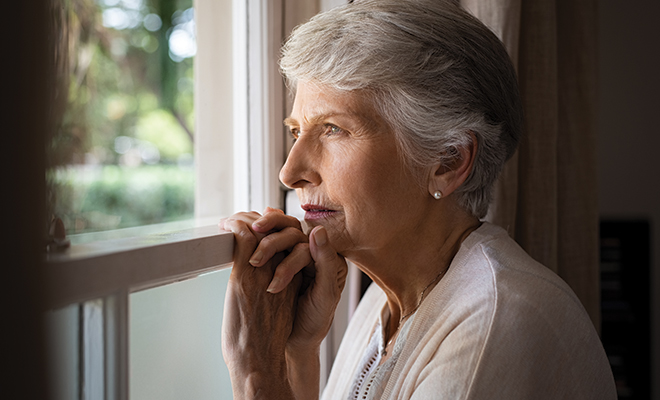
Aging and Depression
My late grandmother was never one to sit out life on the sidelines. She consistently embraced a “get up, get out and get going” attitude. She maintained this momentum until, as we like to say, her “untimely” death a month shy of 108.
Even though she lost her husband 34 years prior to her passing, she knew that if she let her grief or the inevitable aspects of aging slow her down, she might spiral into debilitating depression, so she vowed to maintain a lifestyle that did not permit an assault on the heart and mind. “I’m far too busy to be depressed,” she would quip, and in that attitude was sound advice.
Older age is frequently seen as a time of rest, reflection and the time to do those things we wanted to do but were too busy to do when raising families and pursuing careers. However, for many individuals, transitioning into the afternoon of life may not feel idyllic. It can be a time of medical disorders, the loss of friends and loved ones, and the inability to do once-cherished and valued activities. Physical limitations, such as impaired hearing, failing vision or other physical changes, coupled with limited financial resources, can open the door to a host of negative emotions, including sadness, anxiety, loneliness and low self-esteem. As a result, this can lead to social withdrawal and apathy.
What are some of the signs of depression in an older individual? What can be done in terms of treatment or taking a proactive stance to keep it at bay?
Depression can be a problem for many older adults, and its symptoms can affect many aspects of one’s daily life, including energy levels, appetite, sleep and interest in work, hobbies and relationships. Sadly, many seniors do not recognize the symptoms of depression, or they fail to take action to get the help they need. They simply might assume they have a good reason to feel down or that depression is just a normal part of aging.
Being isolated can contribute to the gloomy feelings, and it can also leave one without others around to notice the distress. One may experience physical symptoms but not realize those can be attributed to depression. A simple shrug of the shoulders coupled with the feeling that this is all a part of aging can be detrimental.
Some of the primary red flags of depression in older adults include sadness or feelings of despair; unexplained aches and pains; loss of interest in the things they once enjoyed; weight loss or appetite loss; lack of motivation or energy; sleep disturbances; low self-worth; increased use of alcohol or drugs; thoughts of death or suicide; impaired memory; poor hygiene; and slowed speech or movement.
Certain medical conditions can also exacerbate depression. These include stroke, cancer, heart disease, diabetes, thyroid disorders, lupus, multiple sclerosis, dementia, Alzheimer’s and a vitamin B12 deficiency. Medications used to treat some of these diseases can aggravate depression, such as blood pressure medication, Beta-blockers, high cholesterol drugs, sleeping pills, steroids, ulcer medication, pain killers and arthritis drugs. Sometimes lowering the dosage of a medication or switching to another one can minimize the feelings of depression.
If you are experiencing these symptoms, or if an older adult you love seems to be struggling with depression, there are ways to combat it. Find ways to stay engaged. You may not want to interact with others when you feel this way, but isolation and disconnection from others only worsens depression. When you are socially, mentally and physically engaged, you will begin to feel better. If you cannot get out to visit others, invite loved ones to visit you, or at least keep in touch by phone or email.
If you’re mobile, get out into the world. Go to the park, make an appointment with the hairdresser or have lunch with a friend. Volunteering to help others is hugely instrumental in dealing with depression and it’s a great way to feel better about yourself. Be sure to schedule regular social activities, group outings or trips to the local community center.
Don’t forget about your diet, either. Plan and prepare healthy meals, as a poor diet can make depression worse. Incorporate sufficient amounts of fruits, vegetables, whole grains and proteins into every meal.
If treatment for depression is required, make sure you or your loved one follows through on this matter, as stopping treatment too soon may make the depression recur. If medication is prescribed by a therapist, be sure to take it exactly as prescribed and avoid the consumption of alcohol while on medication.
Most importantly, watch for a warning sign of suicide. Seek immediate professional help if you are feeling this way or suspect your loved one is contemplating suicide.
Remember! Depression does not have to be a part of the aging process.
Sources: apa.org and helpguide.org.







